Share
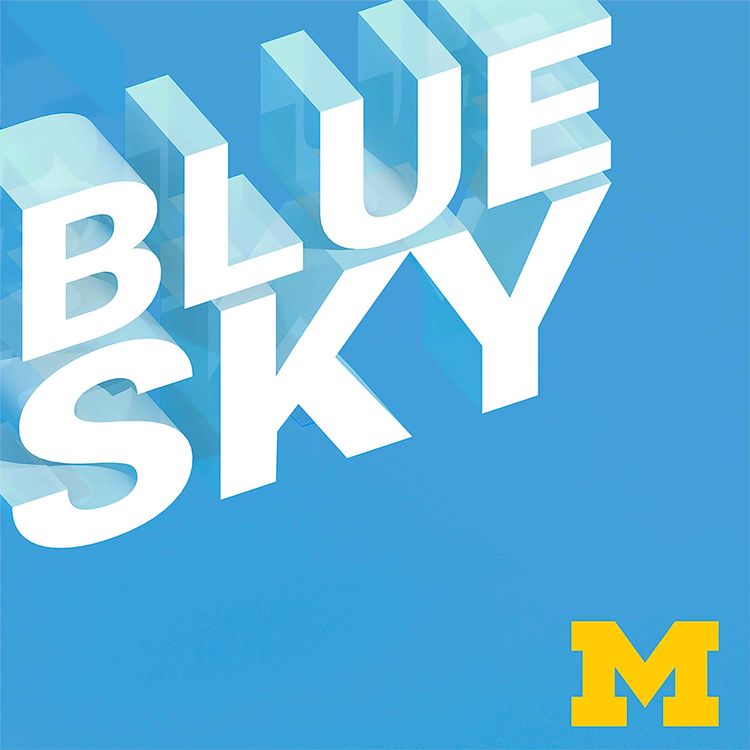
RE: Engineering Radio
Coming Soon: The Blue Sky Podcast
Season 3, Ep. 0
•
Engineers are problem-solvers. And humanity has some colossal problems.
The Blue Sky Podcast is an award winning limited series from RE: Engineering Radio and the University of Michigan College of Engineering. We’re following four research projects in critically important areas of global consequence. Coming November 25th.
.
.
Enjoying RE: Engineering Radio so far? Rate, review and subscribe to receive notifications when new episodes go live!
- Apple Podcasts: https://umicheng.in/EngineeringPod
- Spotify: https://umicheng.in/EngineeringPodSpotify
- Google Play: https://umicheng.in/EngineeringPodGoogle
More episodes
View all episodes
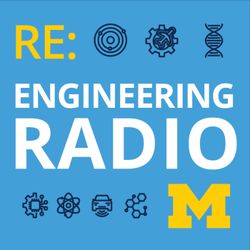
2. The future of Line 5: Engineering under Lake Michigan
15:36||Season 4, Ep. 2Michigan Governor Gretchen Whitmer gave the Canadian oil company Enbridge until May 12th to shut down the segment of the Line 5 pipeline that runs along the Straits of Mackinac. Enbridge has filed a federal lawsuit challenging the order. The question remains: how would Enbridge shut down the controversial pipeline and construct a replacement tunnel?As the deadline approaches, University of Michigan engineering researchers offered insights into how the company might go about doing that, and also how they might construct a tunnel under the lakebed for a replacement section of the line...Enjoying RE: Engineering Radio so far? Rate, review and subscribe to receive notifications when new episodes go live!Apple Podcasts: https://umicheng.in/EngineeringPodSpotify: https://umicheng.in/EngineeringPodSpotifyGoogle Podcasts: https://umicheng.in/EngineeringPodGoogle
1. Sticking the Landing
25:25||Season 4, Ep. 1If all goes according to plan, plenty of eyes will be on Mars on February 18th, the day NASA’s Mars 2020 mission is set to touch down on the Red Planet’s surface. .Late in 2019, just months before the U.S. plunged into full-on, COVID-19 life, NASA tapped Mechanical Engineering Assistant Professor Jesse Capecelatro and his team to help study the particles that are stirred by the landing of a spacecraft. The rockets that fire on a typical spacecraft landing kick thousands of tiny surface particles into motion, and those particles can create trouble for any multi-million dollar craft even under the best of circumstances.For the Mars 2020 space mission and other landings scheduled over the next few years, the University of Michigan crew will collect data and create physics-based models that can be incorporated into codes used by NASA. They’ll help predict what happens when a spacecraft attempts to land millions of miles from home...Enjoying RE: Engineering Radio so far? Rate, review and subscribe to receive notifications when new episodes go live!Apple Podcasts: https://umicheng.in/EngineeringPodSpotify: https://umicheng.in/EngineeringPodSpotifyGoogle Podcasts: https://umicheng.in/EngineeringPodGoogle
4. Nanobiotics to Fight Superbugs
18:42||Season 3, Ep. 4S1 E4 - The Blue Sky PodcastEvolution provided bacteria with a mechanism to overcome our antibiotics, and each time we introduce a new antibiotic, they get faster at becoming resistant to it. At the same time, it can take 14 years and billions of dollars to bring a new one to market. Angela Violi, professor of mechanical engineering, is leading a coalition of chemical engineers and biologists trying to change the game by developing antibiotics in a new way. They want to design nanoparticles to exploit weaknesses in the target pathogens. Not only could they work better, they could make it to market faster.The Blue Sky Podcast is an award winning limited series from RE: Engineering Radio and the University of Michigan College of Engineering. We’re following four research projects in critically important areas of global consequence...Enjoying RE: Engineering Radio so far? Rate, review and subscribe to receive notifications when new episodes go live!Apple Podcasts: https://umicheng.in/EngineeringPodSpotify: https://umicheng.in/EngineeringPodSpotifyGoogle Play: https://umicheng.in/EngineeringPodGoogle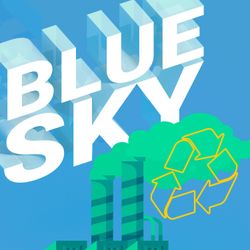
3. Carbon Negative, Dollar Positive
19:55||Season 3, Ep. 3S1 E3 - The Blue Sky PodcastWhat’s more expensive—dealing with climate change, or not dealing with climate change? The Global CO2 Initiative is trying to break the trade-off by making carbon-negative manufacturing pay. The effort views the carbon dioxide in the atmosphere as a resource to be mined from smokestacks or even the air and used to make a variety of products from clothing and shoes, to concrete and packaging. The project aims to reduce the equivalent of 10% of current atmospheric carbon dioxide emissions annually by 2030. Volker Sick, a professor of mechanical engineering and director of the initiative, explains the concept.The Blue Sky Podcast is an award winning limited series from RE: Engineering Radio and the University of Michigan College of Engineering. We’re following four research projects in critically important areas of global consequence...Enjoying RE: Engineering Radio so far? Rate, review and subscribe to receive notifications when new episodes go live!Apple Podcasts: https://umicheng.in/EngineeringPodSpotify: https://umicheng.in/EngineeringPodSpotifyGoogle Play: https://umicheng.in/EngineeringPodGoogle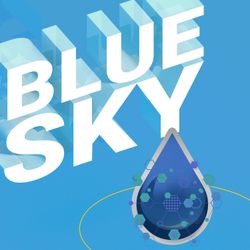
2. Remaking Water Infrastructure
21:57||Season 3, Ep. 2S1 E 2 - The Blue Sky PodcastWe may not like to think of our water as being filled with microbes but...well, they’re in there. And we could be recruiting some to help us out rather than treating them like a monolithic opposition to be roundly defeated with an abundance of chlorine. Lut Raskin, professor of civil and environmental engineering, leads a project that aims to understand and harness the water biome. And it’s not just about healthier water. Understanding microbes could clue us in when water infrastructure is starting to break down—for instance, when cracks are developing in water mains or when protective coatings on the insides of old lead pipes are being corroded away.The Blue Sky Podcast is an award winning limited series from RE: Engineering Radio and the University of Michigan College of Engineering. We’re following four research projects in critically important areas of global consequence...Enjoying RE: Engineering Radio so far? Rate, review and subscribe to receive notifications when new episodes go live!Apple Podcasts: https://umicheng.in/EngineeringPodSpotify: https://umicheng.in/EngineeringPodSpotifyGoogle Play: https://umicheng.in/EngineeringPodGoogle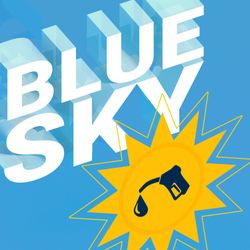
1. Artificial Photosynthesis for Sustainable “Solar Fuels”
16:09||Season 3, Ep. 1S1 E 1 - The Blue Sky PodcastWhat if we could learn from the trees to make a fossil fuel alternative out of carbon dioxide and sunlight alone? We could close the loop on carbon emissions—a critical win in the battle against climate change. That's one of the goals of Zetian Mi, professor of electrical engineering and computer science. He's also aiming to make efficient, affordable ultraviolet LEDs to sterilize drinking water in parts of the world that don't have enough today. Connecting these two technologies is an up-and-coming semiconductor called gallium nitride. Can Mi's team engineer the quantum properties so that gallium nitride lives up to its promise?The Blue Sky Podcast is an award winning limited series from RE: Engineering Radio and the University of Michigan College of Engineering. We’re following four research projects in critically important areas of global consequence...Enjoying RE: Engineering Radio so far? Rate, review and subscribe to receive notifications when new episodes go live!Apple Podcasts: https://umicheng.in/EngineeringPodSpotify: https://umicheng.in/EngineeringPodSpotifyGoogle Play: https://umicheng.in/EngineeringPodGoogle
4. Three Failure Fables
30:06||Season 2, Ep. 4Failure is not an option….but why can’t it be? Too often “failure” is a negative. We’re conditioned to the binary options of either failure or success, but in reality, failure is a lot more nuanced. Join us as Professor Peter Adriaens tells three short stories—on failure, risk taking and the lessons learned to achieve positive outcomes.Peter Adriaens is a professor of engineering, finance and entrepreneurship at the University of Michigan, working currently on financial innovation and risk analytics for industrial renewal. This is a recording of an event hosted by the CID Committee, a pilot program aiming to enhance creativity, innovation and daring. Developed by staff, for staff. Enjoying RE: Engineering Radio so far? Rate, review and subscribe to receive notifications when new episodes go live!Apple Podcasts: https://umicheng.in/EngineeringPodSpotify: https://umicheng.in/EngineeringPodSpotifyGoogle Play: https://umicheng.in/EngineeringPodGoogle
3. Disappearing Pioneers
27:20||Season 2, Ep. 3When women and underrepresented minorities make important contributions to science or technology, why do they later disappear from history? It’s a phenomenon that Lynn Conway, University of Michigan professor emerita of electrical engineering and computer science, has documented since her own erasure. Conway was a driving force in the very-large-scale integration, or VLSI, revolution which triggered the expansion and impact of Silicon Valley, and is credited with making modern digital systems such as cell phones and laptops possible.In this episode of RE: Engineering Radio, she reconstructs how her own contributions faded over time and why “others” lose credit.Enjoying RE: Engineering Radio so far? Rate, review and subscribe to receive notifications when new episodes go live!Apple Podcasts: https://umicheng.in/EngineeringPodSpotify: https://umicheng.in/EngineeringPodSpotifyGoogle Play: https://umicheng.in/EngineeringPodGoogle